
In the field of AI, the focus has shifted from academia to industry, and the imbalance continues.
Science published an article in the latest issue of the official issue, which compiled relevant data in the field of AI in recent years. The results are also clear at a glance:
AI competition, academic circles lose .
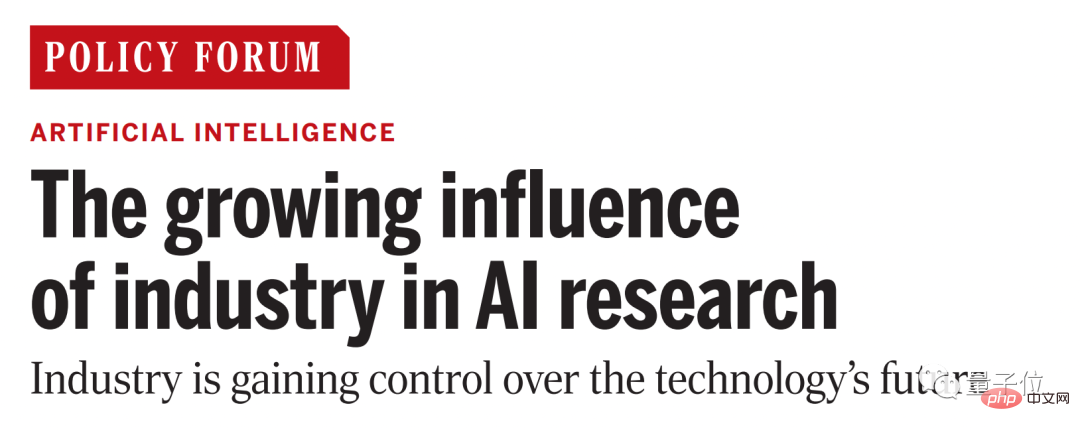
Science counts the proportion of papers, AI largest models, and SOTA models in various fields.
Since 2016, the proportion of papers published by the industry at leading artificial intelligence conferences has started a trend of brutal growth.
In 4 years, the industry has "taken" almost 20% from the academia in terms of the number of papers.

The top 10 models in the AI field were still dominated by academia before 2013.
After that, the industry continued to exert its efforts. By 2016, almost all of the next 10 major AI models came from the industry.

Not to mention the SOTA model. Last year, the industry directly dominated the SOTA of language models and image classification,
The SOTA that analyzes emotion, semantic segmentation and target detection is roughly half the work of industry and academia, while the SOTA of machine translation all comes from academia.
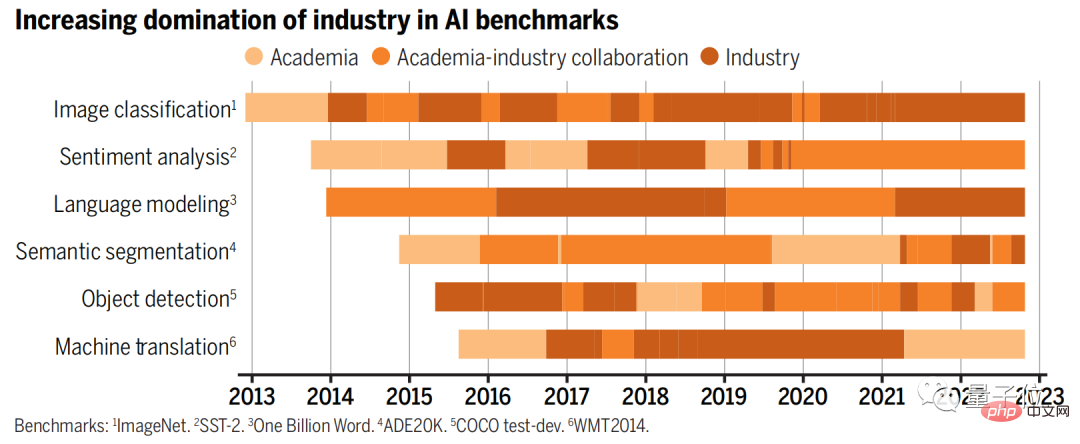
Of course, this trend is also a tacit fact in the hearts of netizens, and some people even made meme pictures to ridicule:

The most important reason for the current situation is:
talent loss.
Taking data from North American universities as an example, computer Ph.D.s specializing in AI research are currently pouring into the industry:
In 2004, only 21% of Ph.D.s chose to enter the industry. By 2020 , the proportion of PhDs entering the industry has reached nearly 70%.
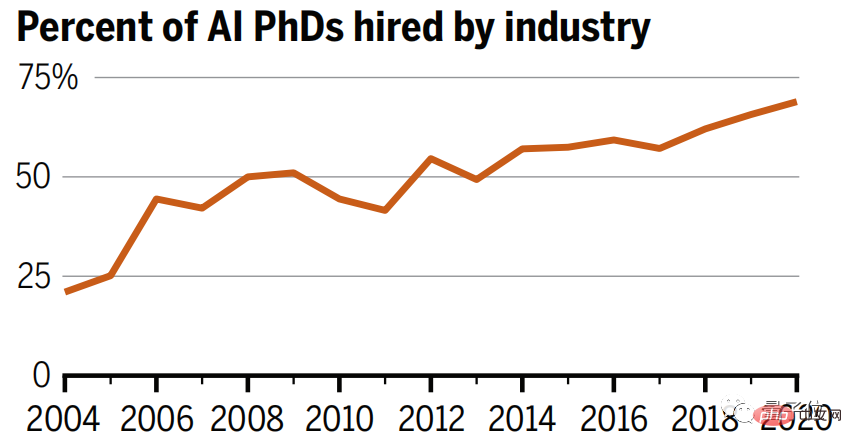
Moreover, this data is limited to talents in the field of AI research.
It can be seen from the data in recent years that the industrial demand for general computer science has not changed significantly. On the contrary, the market demand for talents specializing in the field of AI has increased eightfold since 2006.
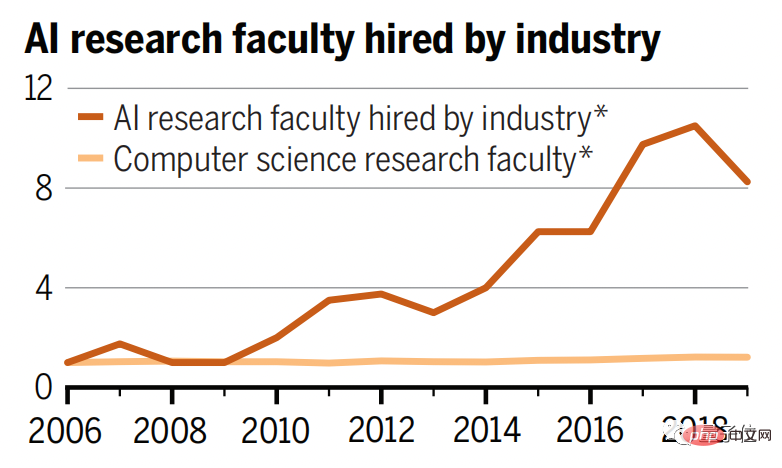
So why are AI talents flowing from academia to industry?
From a large level, it is related to the computing power mentioned before by Science.
Obviously, the industry has a great advantage over academia in this area.
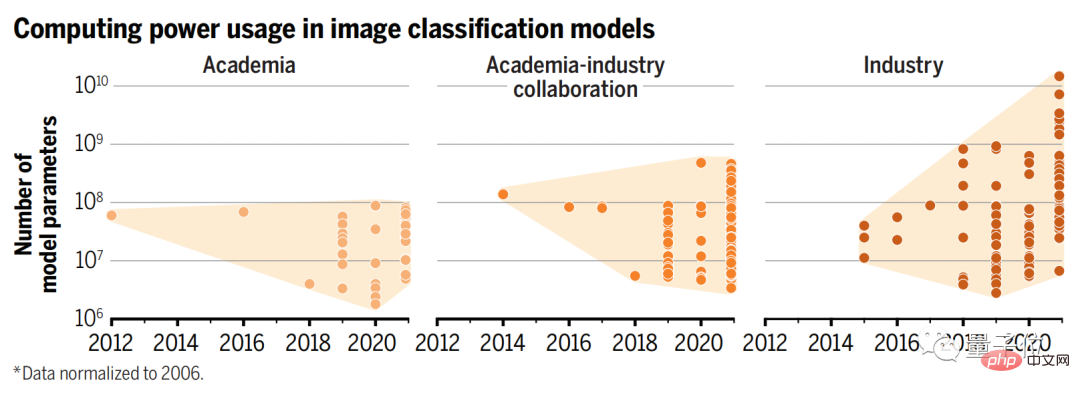
If a worker wants to do his job well, he must first sharpen his tools. Whoever has strong computing power will naturally be able to attract more talents.
But to put it bluntly, whether the computing power is strong or not depends largely on capital investment.
Give a chestnut
The source of scientific research funds in academia mainly comes from government support. In 2021, the investment by relevant US departments in artificial intelligence is 1.5 billion US dollars, and the EU's investment in the same year is 1.2 billion. Dollar.In contrast, the global AI industry’s expenditure this year has exceeded 340 billion US dollars. Even in 2019, Alphabet, Google’s parent company, invested US$1.5 billion in its subsidiary DeepMind.
Of course, the above are all discussed from a relatively macro perspective, so how do individual researchers as individual think about it?
Researcher Rowan Zellers, who just joined OpenAI after graduating from his Ph.D., showed up and gave his own account.
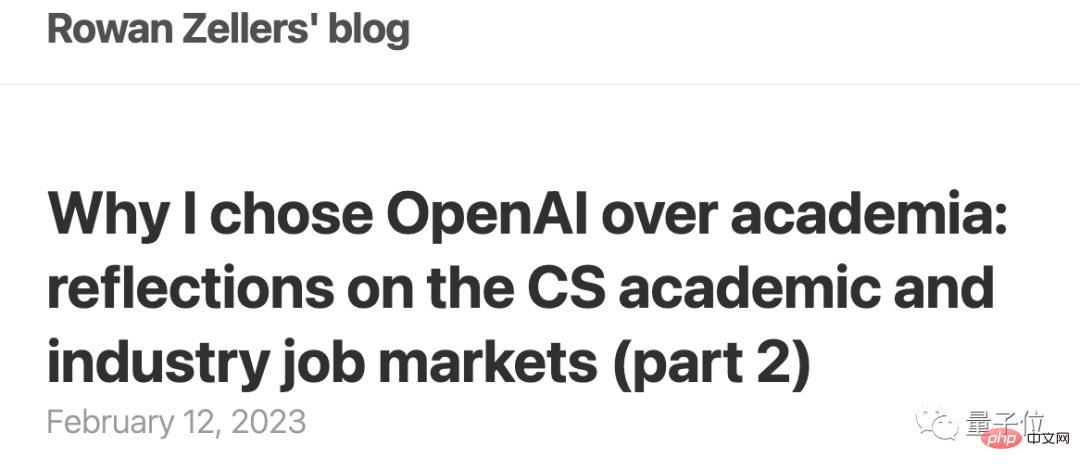
Rowan Zellers bluntly said that he was torn between industry and academia when choosing employment, but in the end he chose industry. And the reasons, he also listed them one by one:
And the loss of talent and the tilt of computing power can also be said to be the inevitable result to a certain extent , in the Science article, two reasons are listed:
Let’s first talk about this particularity in the AI field.
In other subject areas, academia and industry will naturally form a division of labor. Basic research is completed by universities, and applied research and development are the work of industry.
However, this set of logic does not apply to the AI circle. In the field of AI, the boundaries between basic research and applied research are blurred.
In other words, there is overlap between application models used in industry and basic research. Take the Transformer model developed by Google Brain in 2017 as an example. It not only belongs to basic research, but can also be further used. directly used in industry.
In addition, the increased investment in artificial intelligence by the industry may lead to the commercialization of technology, which will not only provide substantial benefits to society, but also provide rewards for the industry itself. .
As for academia, the majority of funding sources depend on allocations from relevant institutions.
For AI talents who stay in school, although they can get bonuses and get promoted for publishing papers, scientific research is not their only job. They also have teaching tasks.
And generally speaking, academic research laboratories are non-profit. For example, Rowan Zellers worked at the Allen Institute for Artificial Intelligence before joining OpenAI: it took a lot of time and money. . .
emmmmm, it seems that the academic community has completely lost in this AI competition.
Of course, it cannot be said that the academic community has completely lost the AI competition. In the top 100 paper citations ranked by Zeta Alpha statistics, there is still a balance between academia and industry. Very good.
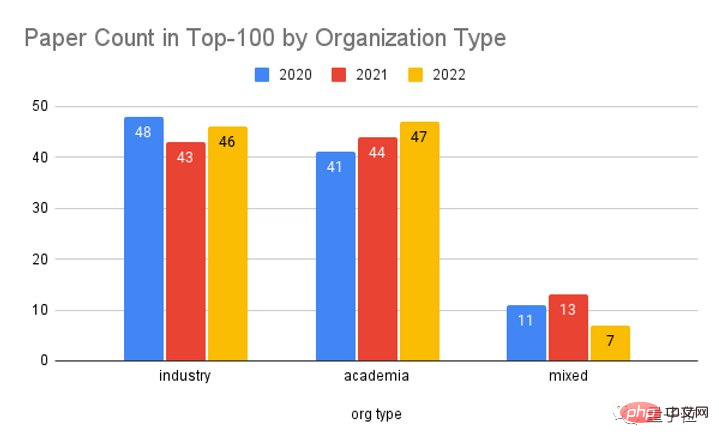
Speaking of which, what do you think of the AI competition between academia and industry?
Reference link:
[1]//m.sbmmt.com/link/f812291e86e5d515984dc44cf9d41ac3
[2]//m.sbmmt.com/link/6a21bd02b3d17059c61bcb2eeb48b8cd
[3]//m.sbmmt.com/link/32b9e74c8f60958158eba8d1fa372971
The above is the detailed content of Science: AI competition, academia loses. For more information, please follow other related articles on the PHP Chinese website!




